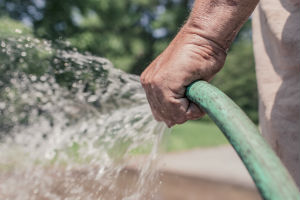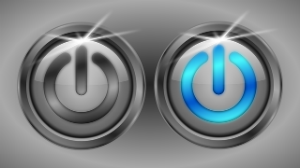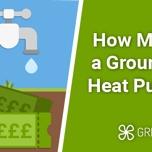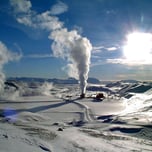
Get up to 4 quotes by filling in only 1 quick form

Slash your energy bills by installing a heat pump

We’ve helped over 500,000 homeowners reduce their carbon footprint
- GreenMatch
- Heat Pumps
- What Is a Heat Pump Water Heater?
- How to Choose a Heat Pump Water Heater?
How To Choose a Heat Pump Water Heater?
Heat Pumps and Efficiency
Heat pumps produce heat by moving air from one place to another and they can be used either to warm up places or water. Heat pumps water heaters are usually more efficient in mild climates that have temperatures between 40 and 90 F, equivalent to 4.4 and 32.2°C. The main reason for this is the fact that they generate cold air during their functioning and they source heat from air.
It is very common to use geothermal heat pumps coupled with a desuperheater for heatings. The desuperheater heats the water through the excess gasses deriving from compression that would be freed back to the ground. During the summer, the geothermal pump produces a big amount of heat that fulfils hot water needs, but in periods with lower temperatures such as autumn, winter and spring, the heat produced is not enough so households also need to use hot water tanks to satisfy their needs.
GreenMatch provides you with up to 3 free of charge and with no obligation quotes from qualified installers that will allow you to compare different options so you can find the most suitable for you without spending hours of your time doing research. Just fill in the form below to request offers.
- Quotes from local engineers
- Payment by finance available
- Save up to £1100 per year
It only takes 30 seconds



Which Criteria to Use When Choosing a Heat Pump Water Heater?
There are 4 elements to consider carefully:
1. Size and First Hour Rating
Size

It depends on the energy you are using to power the system or the type of system. In the case of tankless or demand-type water heaters, it is important to determine the flow rate, namely the number of appliances that will be working at the same time and that will be using hot water. Another element to consider is the optimal water temperature needed for all the devices to work properly.
First Hour Rating

Another important element to consider is the heater´s first-hour rating. This is the amount of hot water that is produced per hour starting with a full tank. The value is positively related to the tank’s capacity, the size of the burner and its nature. The greater the tank capacity, the greater the amount of water that will be collected in a given time span. The bigger the size of the burner also the greater will be the water production since less time is needed to produce the litres of water compared to a similar boiler but smaller in size.
The type of burner used is also very important as some are more efficient and powerful. It is advisable to choose a mode that can satisfy the peak hour demand. This means the highest amount of water that is consumed at a certain time of the day depending on the number of people in the house and the hot water powered appliances used.
Some aspects to consider when deciding which fuel to use are the characteristics of the fuel itself and its advantages, the size of the device to be powered and the costs related to the different alternatives.
2. Fuel Type
Fuel
The type of fuel used, its availability and cost, affect both the cost impact and the size and efficiency of the device. There are different sources available each having their own pros and cons: electricity, fuel oil, geothermal energy, natural gas, propane and solar energy. It is important to compare the prices and the performance of these sources both in the short and the long run and also consider the fuel currently in use in the house.
Fuel Energy Efficiency
Energy efficiency is linked to the argument we presented above and the scrutiny of the potential of each source and device. The aim is to assess the different alternatives and the advantages and disadvantages implied by each option in terms of different fuels performance and the cost paid to source them.

3. Energy efficiency
It is usually measured by the Energy Factor that considers the heater efficiency in terms of hot water produced over the amount of hot water consumed daily. The value includes the heat loss in the cycle, due to the storage and the speed of heat transfer from the pump to the water.
4. Overall costs

They refer to the overall economic impact of the heat pump water heater. They include the cost of purchasing the heat pump water heater, the amount of money needed for the installation, the maintenance, fuel costs and additional expenses that the household may incur.
Moreover, you need to compare the costs of water heaters with other alternatives before the purchase.
If you are interested in getting a heat pump at home, you are welcome to fill in the form below and we’ll provide you with up to 3 quotes from our network of qualified installers so you don’t have to waste hours of your time researching and you can objectively compare quotes side by side.The service is completely free and with no obligation.
- Quotes from local engineers
- Payment by finance available
- Save up to £1100 per year
It only takes 30 seconds



 We strive to connect our customers with the right product and supplier. Would you like to be part of GreenMatch?
We strive to connect our customers with the right product and supplier. Would you like to be part of GreenMatch? 


